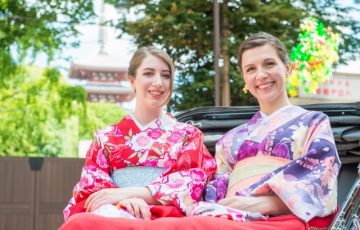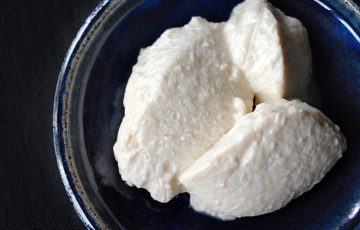 Japanese society is in a constant state of flux, riding the peaks and troughs of the economic wave, and taking cues from the west that suit Japanese sensibilities and rejecting those that don’t. As society evolves, so does its vocabulary. New words and expressions keep popping up on TV variety shows, in songs, bars and on the streets – with the latter usually being the original source.
Japanese society is in a constant state of flux, riding the peaks and troughs of the economic wave, and taking cues from the west that suit Japanese sensibilities and rejecting those that don’t. As society evolves, so does its vocabulary. New words and expressions keep popping up on TV variety shows, in songs, bars and on the streets – with the latter usually being the original source.
Buzzwords come in and out of fashion as Japan and its social trends stride forward. A few years ago, a number of Japanese expressions used to describe certain social phenomena were particularly prevalent. For example, the term Yamamba Gyaru, which literally translates to ‘old mountain hag,’ was used to describe the girls in Shibuya who looked like pandas due to the heavy application of very dark foundation and mascara being layered upon sun-bed tans. Silvery-white eye shadow painted on around their eyes finished off the ‘look’ that was also comprised of dirty, bleach-blonde hair and a pair of Hello Kitty slippers.
The Yamamba started to become an endangered species on the streets of Tokyo (particularly on Center Gai in Shibuya) and numbers gradually declined until the species was pronounced extinct by two Japanese ministries: the Ministry of Agriculture, Forestry and Fisheries and the Ministry of Defense.
As the fad died so did the terminology. You never hear the term Yamamba being used anymore, although interestingly there have been a number of unconfirmed sightings of the lesser-spotted Yamamba in remoter areas of Saitama and Chiba prefectures.
Enjo kosai was a term coined to describe high school girls who would supplement their pocket money by going on ‘sponsored dates’ with (much) older men, and is another example of a term we hear less of these days.
Similarly, and perhaps more pertinent to Japan’s dating scene, the once common expression used to describe unmarried women who had been ‘left on the shelf,’ has also become outmoded. Kurismasu keiki, or Christmas cake in its non-Japanese-phonetic state, derives from cake shops wanting to sell all their Christmas cakes before December 25, as after that no one would buy them. This expression, as regards unmarried women, needs no further elucidation.
The Male Herbivore
Females searching for Mr. Right during this romantic season must pay heed to a new breed of man becoming evermore prevalent in Japan. Known, quite literally, as “grass eating men,” soshoku danshi, are an emerging species that take the now-defunct term “metrosexual” to a whole new level.
The male herbivore is more likely to become your best friend than the red-hot, lifelong lover you so yearn for. However, they are not to be dismissed completely as they do come with their advantages, and may have omnivorous or even carnivorous friends more willing to dine with or on you.
Soshoku danshi will be more than happy to be dragged around shops with you (in fact it may be him doing the dragging), as he knows his fashion, is perfectly at home in the female underwear boutiques of department stores, has a plethora of health, fashion and beauty tips that he’d be only too happy to bestow on you and, failing your ensnaring of a real boyfriend, will obligingly act as a better-looking, dressed, smelling, and educated version of the future partner you have yet to meet.
For the ladies, this unaggressive, attentive and thoughtful breed of man – who has zero interest in you – may seem like a waste, but it’s his choice. You may think him to be of the “flamboyant” persuasion, but you’d be mistaken. Although he emotes, is sensitive, uses a skin toner that’s quadruple the price of yours and is imported from the Vallée de la Loire in France, has a Prada man-bag and an apartment that looks like an uber-modern Italian interior design store, he is heterosexual, no matter how hard you may try to convince the both of you he is not.
Far from “chasing tail,” for a night in the sack, the male herbivore channels his energies into himself and alternative interests. Ultimately he may feel that the right girl is out there, but he’s certainly in no hurry to find her, or to be found. He’s laid back, takes life in his stride and is immune to any social stigmas that some may try to attach. On paper he is the perfect guy, but he thinks of you more as a sister than a girlfriend. Sorry.
The Female Carnivore
 For a while now we’ve been hearing about the growing number of women dubbed konkatsu joshi, meaning female “marriage hunters.” Note, however, the term konkatsu can be applied to men too – just not in this article.
For a while now we’ve been hearing about the growing number of women dubbed konkatsu joshi, meaning female “marriage hunters.” Note, however, the term konkatsu can be applied to men too – just not in this article.
Marriage hunters, as their name suggests, are interested in one thing and one thing only. And once they’ve got that big, fat, icy rock from Tiffany’s on their finger, they’ll endure the subsequent marriage until such time as they opt for a spousal upgrade – another boom in Japan right now.
Marriage hunters are a cash cow for cash-strapped businesses in Japan. Many run-of-the mill bars, for example, have reinvented themselves as konkatsu bars, exclusively for singles who are looking exclusively for marriage without all the bothersome “preambles.”
Triumph International (Japan) Ltd. has even unveiled a ‘konkatsu bra’ that features a clock under the bra cups that counts down to a predetermined marriage deadline. Inserting an engagement ring into the heart-shaped ring box located between the cups stops the ticking and a congratulatory wedding march begins to play.
Additionally, the book ‘Konkatsu Jidai,’ or The Era of Marriage Hunting, is a bestseller in Japan.
Konkatsu joshi are unabashed about their convictions and it’s not as if there are any ulterior motives when it comes to dealing with this genus of lady – her motives wordlessly emanate from her desperation to be wed. It is indeed a fine line between dreams and desperation, but her hunt will continue regardless, and sooner or later she will find her prey… failing that she may evolve into a fully-fledged, no-holds-barred, apex-predator. As feared as she is revered, this urban-dwelling hunter has come to be known as the notorious nikushoku joshi.
Nikushoku joshi, or “meat-eating girls” take complete charge of their fate. They’re go-getters in the literal sense. They will go out and get the man they want; even if his services are only required until her appetite is satisfied. They fear no man, but are not devoid of feelings altogether – they just know what they want.
These carnivorous predators will declare their love for their flame, rather than waiting for him to cough, splutter and choke out those three sacred words. Conversely, she will extinguish the flame with one quick puff if it doesn’t burn bright enough, or emit enough heat to have the wax cascading down in torrents like an igneous waterfall.
These alpha-females have taken a number of cues from their male counterparts and are thus not adverse to approaching complete strangers in bars they like the look of, or think may have had just one or two pints too many of Guinness – enough for his guard to be down, but not so much that he’s ‘down and out,’ if you catch the drift.
Nikushoku joshi are adept hunters, both strategic and opportunistic. Her Jimmy Choo heels, fluttering eyelids, salon-set hair and ten perfectly contoured, jewel-embellished acrylic nails are just some of the weapons in her armory. Perhaps, however, her most deadly trait is her financial independence, meaning she can liquidate her assets on demand to pay for drinks, more drinks, a couple of tequilas, a drink or two for the road, the taxi, the hotel and your train fare home in the morning.
Interestingly, according to anthropological studies of this new generation of raptorial women, the prey they crave most remains extremely elusive. Even as they’re being stalked by packs of nikushoku joshi, their well-honed defensive techniques keep the most famished of meat eaters at bay. By constantly preempting and evading ravenous attacks with loaded phraseology such as, “Can I use your lip gloss?” “Do these jeans make my butt look big? And the Machiavellian masterstroke, “You’re like the big sister I never had,” the epic battle between Nikushoku joshi and Soshoku danshi rages on.
Happy hunting this Valentine’s Day, and thereafter…
Story by Jon Day
From J SELECT Magazine, February 2010















Recent Comments